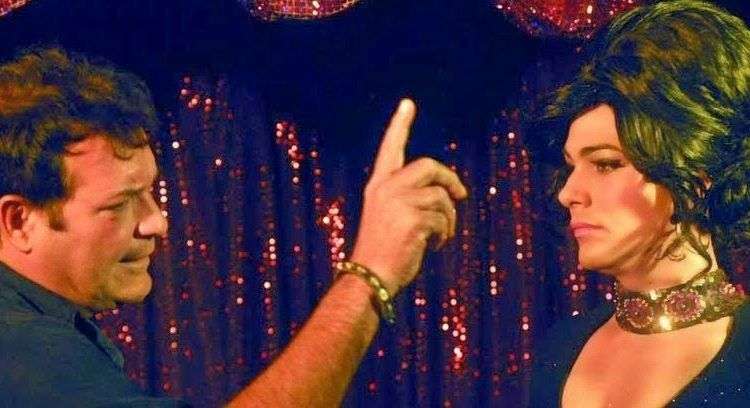“Fatima does not surrender, Fatima is immortal.” Thus ends the story of Miguel Barnet Fatima or The Fraternity Park awarded the Juan Rulfo in 2006 and made into a film by actor and filmmaker Jorge Perugorría.
This phrase inspired Perugorría (Affinities, 2010; Chronic Love, 2012; Se vende, 2012) to make his fourth film, co-produced by the Cuban Institute of Cinematographic Art and Industry (ICAIC) and NMP.
“I loved Fatima because somehow life since childhood puts her many obstacles, but her fighting spirit and perseverance don’t let her abandon her dreams. This fascinated me. People who do not surrender is admirable and I love perseverance, getting up stronger after falling, overcome obstacles, is memorable. Because in a world like the one we live in today we all have so many problems, so many contradictions, conflicts and doubts, convey that sense and build a character with such strength, vitality and imposition of the problems, I think it is important, “said the filmmaker.
This recently completed film version will premiere at the upcoming edition of the International Festival of New Latin American Cinema that begins Thursday. Once again the work of Barnet, current president of the National Union of Writers and Artists of Cuba (UNEAC), breaks into celluloid. A quarter century ago Enrique Pineda Barnet directed the acclaimed film La Bella del Alhambra based on his novel Song of Rachel, and published in the Island in 1969.
Fatima is a drama set in a single day, in about six hours in which the character sees her entire life goes in front of her eyes. By dissimilar flashbacks, the protagonist recalls since, as a teenager, has a vision of the Virgin of Fatima until today. Seen in the film from her early youth, how he becomes a transvestite, with all the implications this has on her life until she becomes 40.
The plot of the film takes place from the eighties to the present day. As the title itself suggests, most of the films were in the central Fraternity Park, and surrounding areas of Old Havana and Centro Habana. Supposedly develops in Madruga (province Mayabeque) the part of the youth of Fatima, recorded in Artemisa, by proximity, during the six weeks of filming in September last year.
The plot of the film takes place from the eighties to the present day. As the title itself suggests, most of the films takes place in the central Fraternity Park, and surrounding areas of Old Havana and Centro Habana. Supposedly in Madruga (Mayabeque province) the part of the youth of Fatima develops, recorded in Artemisa, by proximity, during the six weeks of filming in September last year.
OnCuba spoke with Perugorría, who will participate in this Festival as an actor in three other films (The wall of words, Wedding Dress and Return to Ithaca):
How did you have the idea of taking this story to film?
This literary work has been published in many countries, in different languages, was Juan Rulfo Prize and Barnet recorded an album narrating the story with his own voice. Once we met for dinner at a mutual friend that ended up being producer of the film to hear this recording. When I started to hear the story I found the character of Fatima fascinating. Somehow it reminded me, though it has absolutely nothing to do with, of the grace and sympathy Diego, the character written by Senel Paz I played in Strawberry and Chocolate. I found it very interesting and I said: there’s a movie there. This friend, who is also a fan of the story and the work of Barnet and who led the meeting also discussed the interest of making a film out of the text and we agreed. We immediately started to work. Fidel Orta wrote the script and with the cooperation of ICAIC we finished it.
The original text is a monologue. How did they do to bring life and voice to the characters and how was the selection of actors?
It was quite difficult to select the actor who would play Fatima because as you know the film rests dramaturgically in this character, because the story is just a monologue. The actor should also have a physical to allow him to play the character since he was 16 years till he arrives at four decades of life. Because of these complexities took a shot, very numerous and rigorous casting.
I was happy because despite being very difficult, there were good tryouts in this casting. To the entrants we put the makeup and filmed them, they sang, danced. It was a wonderful experience. The hard part was deciding, but I think fortunately we selected the right one and we are very happy with the result. It was right to select Carlos Enrique Almirante, he did a wonderful job that puts him in a place of greater maturity with respect to previous interpretations.
It was very complex, really. We did a lot of preparation and a huge table work and character building. Carlos Enrique ended up really singing in the famous transvestite club Rogelito. As part of the preparation, Jazz Vila and Cucu Diamantes, who play Katiuska and Salmon, began working two Saturdays in a row as singers in this club that is well known in this area, and served them much at three to delve into this world and to defend it in the shooting of the film.
It was very interesting the fact they complemented each other which, fortunately, with other major actors involved in the plot as Tomás Cao, who plays in an extraordinary way Vaseline, love of the protagonist. Also participating were Mirtha Ibarra, who plays Olena, a friend of Fatima; Nestor Jimenez and Broselianda Hernandez who are the parents of the leading character. The work of Carlos Enrique was the great motivation to do everything to rise to the occasion. Rounding out the cast were Mario Guerra, Patricio Wood, Leonardo Benitez, Rodolfo Faxas, Rene de la Cruz, Felix Beatón, and Andros Perugorría.
What other professionals joined you on the staff?
The photography was by Alberto Granado, Erick Grass was the art director, Magdalena Álvarez, makeup artist, and Livia Batista casting director. Production director was Francisco Alvarez and Ruben Valdés was in charge of sound. The music was composed by Ernán López-Nussa in collaboration with Andrés Levin and Cucu Diamantes. It was an intense shoot but the whole team enjoyed the experience. When people enjoy everything is nice because an enthusiasm and a special delivery which is then shown on the outcome of the film is perceived. I thank the whole team for their effort and support.
What was the biggest challenge of Fatima?
It is a film about perseverance, people who persist and fight without surrendering despite the adversities that fate brings them. Transmiting all these experiences, circumstances and situations was our goal. Everything was a challenge because it is a complex film. Its biggest challenge was, without doubt, the fact of making a monologue into a movie with more characters and situations, parliaments give voice to the other performers who are also involved in the text. It was a great challenge that translates into film as literary and complex story. We are very happy with the result.










